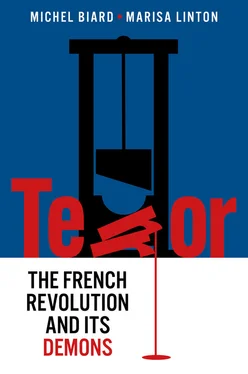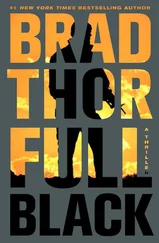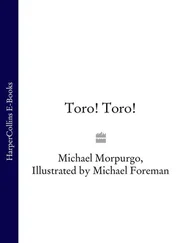Less than three weeks later, on 2 Fructidor (9 August), an exchange between three other Montagnard deputies illustrated the divide within the Convention. Louchet, the Montagnard deputy who had been the first to demand the vote authorizing the arrest order against Robespierre on 9 Thermidor, now took to the floor to defend policies of terror. He underlined the seriousness of the dangers threatening the Republic and the need to combat them, stating that he was ‘convinced that there is no other way to do so than to maintain terror as the order of the day everywhere’. 9With the hall resounding with cries of ‘justice, justice!’, Louchet clarified his position by associating the two words: ‘I understand by the word “terror” the most severe justice’. This position was immediately supported by Charlier: ‘Justice for patriots, terror for aristocrats’. 10A third Montagnard, Tallien, who had led the attack on Robespierre and his fellow Montagnard deputies, Saint-Just, Couthon, Le Bas and Augustin Robespierre on 9 Thermidor, defined ‘terror’ as a weapon of tyranny, even while supporting the idea that justice must remain severe against ‘the enemies of the nation’. According to Tallien: ‘Robespierre too constantly repeated that terror needed to be made the order of the day, and while with such language he imprisoned patriots and led them to the scaffold, he protected the rascals that served him’. 11This was another political sleight-of-hand. In Robespierre’s speeches and writings he had always linked the terms ‘terror’, ‘justice’ and ‘virtue’; whilst the expression ‘ terreur à l’ordre du jour ’ (‘terror made the order of the day’) was not his doing. Robespierre had mentioned these two words together only four times. In the summer of 1794, he used them to refer not to the repressive measures put in place by the Convention and its committees but to a ‘system of terror and slander’ targeted towards him, depicting him as a dictator, and attempting to destroy the revolutionary government. 12It was Tallien, rather than Robespierre, who would develop the political concept of the ‘system of terror’ just a few days later.
It was on 11 Fructidor (28 August), that Tallien elaborated the concept of a ‘system of terror’. While he was not the first to use the term, previously deputies had mentioned it almost in passing, and directing it at different political rivals. 13In his momentous speech Tallien developed and defined a new theory of a ‘system of terror’. In speaking of this system, he coined a new term, one which would haunt our modern world: that of ‘terrorism’. He also called it a ‘government of terror’ and a ‘terror agency’. He took great pains to exclude the new – post-Robespierre – revolutionary government of which he was himself a member (he had been rewarded for his part in the fall of Robespierre by a seat on the Committee of Public Safety) from this supposed system. Thus he could better denounce terror as an illegitimate system of the immediate past, whilst safeguarding the legitimacy of the current revolutionary government, which was to serve the Thermidorians’ new political agenda. In defining the ‘system of terror’ he gave a vivid picture of the feelings of fear it engendered: terror took place in the mind’s imagination, as well as in reality:
There are two ways that a government can make itself feared: it can police bad actions, threaten and punish them with proportionate punishment, or it can threaten people, threaten them at all times and for all things, threaten them with whatever the imagination can conceive as most cruel. The impressions that these two methods produce are different: one is a potential fear, the other a ceaseless torment; one is a foreboding of the terror that follows upon a crime, the other terror itself instilled in the soul despite knowing one is innocent; one is the reasonable fear of the laws, the other the stupid fear of persons. The characteristics of terror should be distinguished. Terror is a generalized, habitual trembling, an exterior trembling that affects the most hidden fibres, degrading man and turning him into an animal; it is the disruption of all physical forces, the commotion of all moral faculties, the disruption of all ideas, the upheaval of all emotions …
Since terror is an extreme emotion, it is not susceptible of being either more or less. The fear of the laws, on the other hand, can be increased if needed. Which of these two fears supports, consummates, guarantees the revolution? That is what the question boils down to and what I will examine. Let us begin with terror: judge it by the means it is supposed to employ and by the effects it produces. A government can only inspire terror by threatening capital punishments, only by threatening them with it ceaselessly and threatening everyone, only by threatening through acts of violence ever renewed and ever increased; only by threatening all sorts of action, and even inaction; only by threatening with all sorts of proof and even without a shred of proof; only by threatening with the always striking sight of absolute power and limitless cruelty. To make every person tremble, it is necessary not only to link every action with a torment, every word with a threat, every silence with suspicion; it is necessary to place on every step a trap, in every house a spy, in every family a traitor, in the service of a tribunal of assassins. It is necessary, in one word, to know how to torture all citizens by the misfortunes of some, cutting the life of some by shortening the lives of the others; that is the art of spreading terror. But does this art belong to a regular, free, humane government, or is it tyranny? I often hear it asked why the system of terror cannot be limited to suspect classes while leaving others alone. In response I wish to ask how there can be security for someone where actions are prejudged based on persons, and not persons by their actions. I would like to add that terror must be everywhere or nowhere. The Convention should no longer accept that the republic be divided into two classes, those who create fear and those who live in fear, persecutors and the persecuted. Couthon and Robespierre are no longer here to obstruct the defence of equality and justice. I am also asked if it is possible to strike terror in the hearts of evildoers without troubling good citizens of any class; I answer that it is not, for if the government of the terror pursues some citizens based on presumed intentions, it alarms everyone; and if it only monitors and punishes actions, it is no longer terror that is inspired but another kind of fear that I have already mentioned, the healthy fear of punishment following upon a crime. It is thus right to say that the system of terror presupposes the exercise of an arbitrary power in those charged with spreading it. 14
Tallien added to the horror by stating that the ‘terror’ could strike any citizen anywhere in France; that the increasing number of capital punishments came from the very nature of this ‘system’ that could well fall into excess; that the executions were accompanied by the spectacle of rivers of blood to strike fear even harder into people’s minds; that executing different kinds of people together indiscriminately was another means to instil fear; and, finally, that a most cruel refinement was the collective executions of friends or members of the same family sent to the guillotine together. 15When it came to the guilt of Robespierre and his co-conspirators, there was, for Tallien, no doubt:
Citizens, everything that you have just heard is but a commentary on what Barère said at this very rostrum on the day that followed Robespierre’s death. I would like to add one thing: this was Robespierre’s system. He was the one who put it in practice with the aid of several subalterns, some of whom were killed alongside him and others of whom are buried alive in public hatred. The Convention was a victim, never an accomplice. 16
Читать дальше












